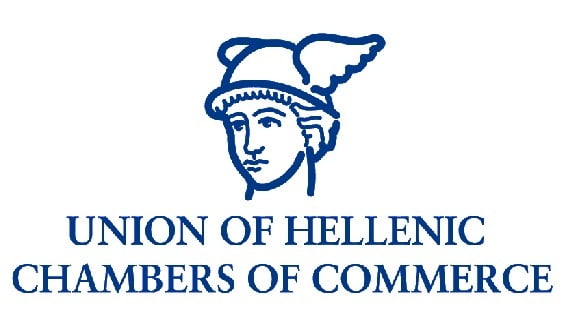What is G.E.MI.
- Home
- What is G.E.MI.
The need for the register
The need to establish a uniform framework for the organisation, updating and use of public administration registers has always been a constant requirement of those dealing with public and wider public sector bodies. Particularly for the business community, overlapping data, problems with nomenclature, different codifications, fragmented data collection by institutions, lack of business history data, etc., were just some of the problems encountered, resulting in problems in the processes of general business.
For all these reasons, the creation of a single commercial register has been a constant demand of the country’s commercial world for many years. It is widely accepted that the creation of a General Commercial Register (G.E.M.I.) of all legal forms of business in Greece will help in the monitoring of commercial enterprises by the state and the better service of the enterprises themselves by the central administration and its competent bodies. Besides, many countries internationally have implemented similar registers such as HOUSE OF COMPANIES (England), PUBLIC REGISTER (America, Singapore), and others. For these countries, the electronic commercial register of companies is a factor of transparency, securing transactions (security and reliability) and speeding up procedures and decision-making at both business and state level.
Thus, in Greece, the institutionalization of the General Commercial Register (G.E.M.I.), combined with the upgrading of the role of the Chambers of Commerce through their transformation into “one-stop-shop”, constitute decisive changes in the axis of simplification of the general procedures of the business environment, which aim both to meet the needs and requirements of all kinds of stakeholders, as well as the effective use and exploitation of the information collected. The operation of a modern and up-to-date central business registry database will greatly facilitate the reduction of bureaucratic procedures for the creation or modification of a company, as well as the issue and submission of “corporate awareness” certificates for almost all transactions of a company. At the same time, a general and uniform business register creates broader conditions for information and information exploitation for the entire public sector. Thanks to this, more effective statistical monitoring of business data, more accurate exercise of political, legislative or audit powers towards and in relation to businesses is possible.
The GEMI project aims to radically overhaul the operation of the individual (fragmented) business registers of all legal forms, i.e. the transition from the current manual – mainly manual – way of processing information and the current work management, to a single environment of automated processing and high efficiency of a General Commercial Register (G.E.M.I.).
The GCI will be – among other things – an instrument of publicity, statistical analysis at national level and a means of protecting third parties both for the GGE and its part of the GCI and for the wider public sector when the whole project is completed.
Expected Results
The simplification of the formal framework for the exercise of commercial activity which is expected to be achieved by the operation of the G.E.M.I. aims to have as a result, among other things, the following results:
- The establishment of a transparent regime for the exercise of commercial activity.
- The consolidation of the security of transactions in general.
- To serve the publicity of commercial activity in the most appropriate and desirable manner.
- To ensure conditions for the exercise and protection of legitimate commercial activity.
- To combat bureaucracy by introducing modern information and communication technologies.
- Ensuring the possibility of rapid service to businesses and citizens through ”one-stop” procedures and the implementation of the requirements of Article 6 of Law 3242/2004.
- The establishment of a simplified and attractive framework for the reception of organised commercial activities from EU Member States and third countries.
The implementation of the G.E.M.I. will lead to significant economic and social benefits as described below:
Flexible and fast monitoring of commercial operations.
This monitoring concerns the recording and automatic updating of changes in all company forms (constitution, articles of association, share capital, etc.) as well as the detailed recording of the financial results and liabilities of companies. The recording of the above data leads to the historical data of the company resulting in the monitoring of changes over time (historical data).
Quick issuance of documents (certificates) which can be easily standardized and extracted from the information in the database. This can overcome the important problem of information for the entities in relation to the data requested by Ministries and other bodies, thus helping to ensure the efficient and quick use of this data by the entities.
Monitoring by the competent department of the reliability of the data of the Public Limited Companies in relation to the fulfilment of their obligations under the current legislation. The above, in relation to the comprehensive picture of joint-stock companies and other forms of enterprises (public limited companies, EU, private limited companies, sole proprietorships, etc.), significantly facilitates the decision-making process related to enterprises in general and to specific enterprises in particular.
The exercise of control and decision-making for each enterprise can be easily obtained by the competent bodies of the State for each sector by the implementation and use of a single Data Bank which will be used for the exchange of comprehensive information to the respective bodies and stakeholders.
Issuance of statistical data which will accurately show the overall performance of enterprises in specific sectors. This data will greatly assist in the policy formulation by the State to identify criteria and methodologies that will help in the proper allocation of benefits in the SE sector.
Synergy with other public sector projects to make more effective use of information between the various public services as well as the activation and exploitation of public sector infrastructure to achieve economies of scale and ultimately better service to the citizen.
95 FF3, App Street Avenue
NSW 96209, Canada
Mon – Fri: 8:00 am – 6:00 pm
City News & Updates
The latest Egovt news, articles, and resources, sent straight to your inbox every month.




